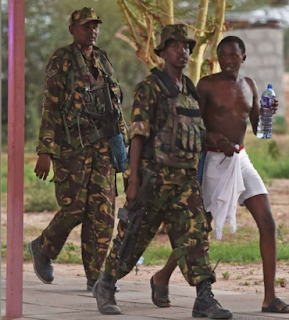
LAW MANDATES LAWYERS TO FIGHT INSECURITY
- 16th November 2015
- JNC Advocates
- Law, Rule
- Insecurity, JNC Advocates, Rule of Law, Terrorism
- 0 Comments
Insecurity in relation to the Rule of Law can be defined as a breakdown in justice and security. All countries in the world are governed by Rule of Law which holds anyone accountable. All Government officials and agents, individual citizens and private entities are held accountable by Rule of Law. Violence and insecurity are frequent occurrences in today’s world. Insecurity emerges when a Government, faced with conflict and violence (be it political, social, economic, or generated by organized crime), cannot or will not ensure the protection of its citizens, organizations and institutions against threats to their well-being and the prosperity of their communities. Such threats may come from the State itself or from non-State actors. Establishing respect for the Rule of Law is fundamental to achieving a durable peace in the aftermath of conflict.
Al Shabaab Insurgency
Kenya has experienced numerous internal and external security threats with attacks both on the security forces and the public. External insecurity in Kenya has been brought about by the Al Shabaab insurgency. It was in April this year when one of the worst ever witnessed terror attack happened in Kenya with more than 140 students killed in a terror attack in Garissa University. On the flipside, internal insecurity is not a recent phenomenon as Kenyans face cases of insecurity within and thus internal insecurity has been to some extent underrated. Most common is cattle rustling, theft and tribal conflicts especially in Northern Rift Valley and North Eastern parts of the country. There have been claims that not much has been done to curb this. Article 40(2) of the Constitution, gives the State obligations to protect property belonging to a person in Kenya. This therefore means by such failure, the State has violated the Bill of Rights. The citizens are also subject to freedom and security of the person and thus failure to provide such security amounts to violation of Article 29 of the Constitution supra. Kenyans are now more exposed to insecurity. What then can be done to curb insecurity without violating the Rule of Law? Even Criminals, the accused, terrorists and people who perpetrate terrorist acts do have human rights, which are clearly envisaged in the Kenya constitution.
Resourced Judiciary
A better resourced Judiciary will go a long way towards ensuring security. More prosecutors, Judges and better equipped courts are also urgently needed to provide an alternative to extrajudicial activities by frustrated security agencies. Maintaining a sound Rule of Law notably reduces the likelihood of terrorist attacks. There should be stronger coordination and liaison between the law enforcement agencies (police and Judiciary) and strengthening of anti-terrorism assistance programs, for example, the rehabilitation of radicalized youth and persons. Resorting to repressive responses which engender further violations will fail to address the root causes of insecurity. A rights-based approach is needed to give effect to the entitlement of each person to feel secure and protected in their daily lives. The Government has the machinery to address the issue of insecurity without violating the law and human rights. Creating public awareness about terrorism and terrorist acts and ways of curbing them is also a leap forward. Another element of this strategy is to empower affected communities by providing them with knowledge about their human rights, building their capacity to demand redress for violations of those rights and ensuring that they are consulted and involved in decision-making processes that will impact on their lives in the context of situations of violence and insecurity.
This Article appeared in the LSK Magazine, The Advocate, Volume 1, Issue 4, August-September 2015



Leave a Reply
You must be logged in to post a comment.